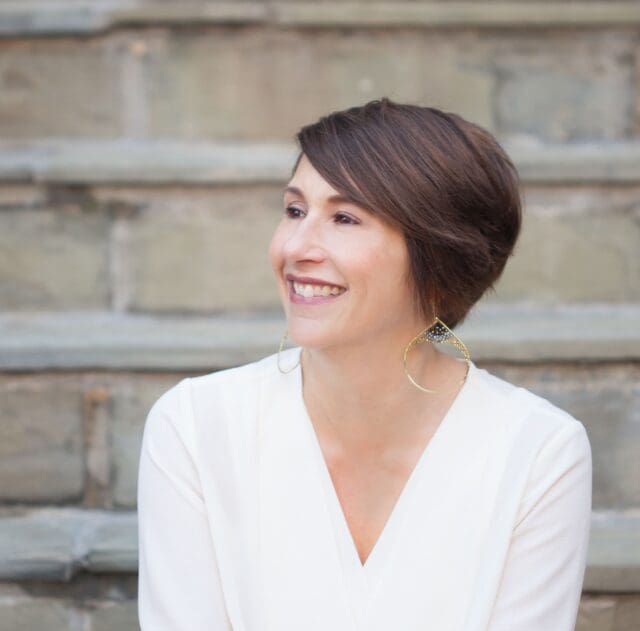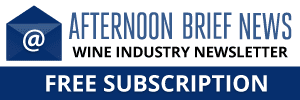Tina Caputo is a California-based journalist who has spent the last 20+ years covering wine, along with food, beer and travel. Formerly the editor-in-chief of Vineyard & Winery Management magazine, she now contributes to multiple publications, including The Press Democrat, Sonoma Magazine, SevenFifty Daily and Visit California. See her work at www.tinacaputo.com. @winebroad
How did you come to wine, and to wine writing?

My family emigrated from Italy to Michigan in the 1950s, and my dad and uncles made wine in my grandparents’ basement when I was a kid. I grew up with wine on the nightly dinner table, so I came to think of it as an essential part of everyday life. After college graduation, I moved to San Francisco. I’d always wanted to be a writer, and when I saw an ad for a job in the communications department at Wine Institute, I thought it would be a good way to combine my interests. There was another administrative assistant in that department, Jennifer Strailey, and she also wanted to be a writer. We became great friends, and we started writing about wine together for an irreverent GenX magazine called Juice. It was fun, and I liked the industry, so I kept going.
What are your primary story interests?
I love writing sweeping stories exploring industry trends, and I’m interested in people who are doing unexpected or innovative things in the wine world.
How did you land the editor role at Vineyard & Winery Management in 2008?
I’d recently left Wines & Vines after five years as managing editor, and I really wasn’t sure if I wanted to stay in trade publishing. But as it happened, Rob Merletti was looking for a new editor for Vineyard & Winery Management, and I couldn’t turn down the opportunity to take the magazine in some fresh directions.
Today, are you a staff columnist or freelance? What are the advantages of both?
I recently started writing a bimonthly tasting room column for The Press Democrat newspaper, but I’m primarily an independent writer. It’s nice having regular work and knowing that a payment of some kind is coming every couple weeks, so that’s the advantage of a column. Being independent is great because I have a ton of freedom and flexibility in my schedule, but it’s rough when there’s a downturn and work starts drying up. You have to hustle, and that can be exhausting.
Is it possible to make a living as a wine writer today? How have you succeeded? What are the primary challenges and hurdles you face?
It’s technically possible, but it’s certainly not easy. Many of the publications I’ve written for have gone out of business, so there are fewer outlets and lots of competition for assignments. The pay is fairly low, because so many people are eager to write about wine for practically (and sometimes, literally) nothing.
I’ve been able to keep going by diversifying. I write for both consumer and trade media. I do consulting and copywriting work, which pays far better than editorial writing. Recently, I started producing audio features for NPR radio stations. I’ve also expanded my scope of work beyond wine, copyediting a university alumni magazine and writing articles for a produce industry publication. You can’t be a purist.
What would people be surprised to know about you?
I was a singer-songwriter in my 20s and 30s.
What haven’t you done that you’d like to do?
Write and sell a screenplay.
What is one thing you’d like your readers to learn from your writing about wine?
If we’re not talking about a news or trend story, I’d like readers to learn that they don’t need to be master somms or MWs to drink and appreciate wine, and that it’s not just for people with loads of money.
What’s the best story you have written?
I don’t know about “best,” but a recent story I really enjoyed writing was for SevenFifty Daily, about rethinking the language of wine. I learned so much from the people I interviewed. https://daily.sevenfifty.com/why-industry-professionals-are-rethinking-the-language-of-wine/
My personal favorite story is the Wine Enthusiast holiday catalog. How did this originate?
I started the series in 2022, and it was inspired by Drew Magary’s hilarious “Hater’s Guide to the Williams Sonoma Catalog.” There’s just so much to mock in wine accessories catalogs! I got my start writing humor and satire — I wrote for Dave Eggers’ Might magazine for a couple years — and I was disappointed in myself for letting that aspect of my writing go. (Spoiler alert: Humor writing pays even less than wine writing, unless you are David Sedaris. I am not David Sedaris.) The Wine Enthusiast thing is a way for me to ditch the filter and have some laughs.
Can you describe your approach to wine writing and/or doing wine reviews?
I don’t consider myself a wine expert, even after 20+ years of doing this, so my approach is to find the right people, ask thoughtful questions and let them talk. Then I self-edit and revise like crazy until I can stand to read my story out loud without stopping to fix something.
How often do you write assigned and paid articles? How often do you blog?
Pretty much all of my writing is assigned/paid. My so-called blog is really a page on my portfolio website where I post humor pieces I don’t feel like pitching to an editor. I write those pieces when something inspires me or I feel like swearing a lot.
Do you consider yourself an Influencer? What’s the difference today between a writer and an influencer in your opinion?
Not unless I’m “influencing” people not to buy dumb stuff from the Wine Enthusiast catalog. The line between writer and influencer can be blurry, but it appears to me that influencers primarily use videos or images in their work rather than writing, and their income comes from brands instead of publications. And they are better looking … and they get paid a lot more than writers. Damn it! Why am I doing this?!
What are your recommendations to wineries when interacting with journalists?
Take a minute to check out the writer’s profile on Muck Rack or their portfolio website to see what they cover.
What advantages are there in working directly with winery publicists?
PR reps can be incredibly helpful in connecting writers with sources and by providing background information and images. I have a lot of respect for the great PR/communications pros in this industry.
What frustrates you most about working on winery stories and/or wine reviews?
Winery websites that don’t include a direct contact for media queries. No, I am not filling in your generic online form — you can’t make me! Seriously, though, it costs wineries opportunities for coverage, especially when writers are on deadline.
Which wine personalities would you most like to meet and taste with (living or dead)?
I’d like to meet Lillie Langtry, the British actress who moved to California in the late 1800s and founded Langtry Farms. She was a colorful and enterprising woman, and she was proud of her wines.
If you take days off, how do you spend them?
Hanging out in Petaluma with my husband and our dachshund. Hiking. Eating and drinking.
What is your most memorable wine or wine tasting experience?
When I worked for Maisons Marques & Domaines, owned by Champagne Louis Roederer, I was invited on a company trip to visit the company’s properties in France and Portugal. As a young person just getting to know wine, I was awed by the history behind the wineries and the incredible wines we tasted. The wines I had access to in that job pretty much ruined me for the $10 selections I’d been drinking on my own dime.
What’s your cure for a wine hangover?
Eat a burrito and drink tons of water. It doesn’t really help, but it’s an excuse to eat a 6-pound parcel of shredded chicken, beans, rice and guacamole.
What’s your favorite wine region in the world?
It’s hard to choose a favorite, but I love the Douro in Portugal for its insanely steep vineyard terraces, and Champagne for its magnificent wines and history. I’m lucky enough to live in Sonoma County, and the wines from the region’s chilly western reaches are some of my favorites.
Do you have a favorite wine and food pairing? Favorite recipe/pairing?
You really can’t go wrong with Champagne and potato chips.

Carl Giavanti
Carl Giavanti is a winery publicist in his 16th year of consulting. Carl has been in business marketing and public relations for over 30 years; his background in tech, marketing and project management informs his role as a publicist and wine writer. Clients are or have been in Willamette Valley, Napa Valley, and Columbia Valley https://carlgiavanticonsulting.com/ He also writes for several wine and travel publications https://linktr.ee/carlgiavanti




